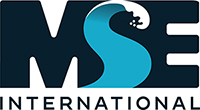More sophisticated autonomous ocean sampling techniques key aim for new project
Posted 2015-11-18 13:53:10 by Admin
 Sensors on small numbers of orbiting satellites give a good global picture of the surface of the oceans but they are limited in resolution and do not give sub-surface data; they are also very expensive. Over the last decade there have been an increasing number of profiling floats and surface drifting floats but both only move with the current and give large scale global measurements. For detailed observations we need control over where, as well as what we measure and to have higher sampling frequency in both time and space.
Sensors on small numbers of orbiting satellites give a good global picture of the surface of the oceans but they are limited in resolution and do not give sub-surface data; they are also very expensive. Over the last decade there have been an increasing number of profiling floats and surface drifting floats but both only move with the current and give large scale global measurements. For detailed observations we need control over where, as well as what we measure and to have higher sampling frequency in both time and space. Underwater and surface autonomous vehicles provide a possible solution. Present-day Marine Autonomous Systems (MAS) need to be pre-programmed with trajectories by humans which can often be restrictive. The SOFA project, Sampling Ocean Features Autonomously, will focus on developing new more sophisticated techniques of autonomous ocean sampling networks which do not rely on human pre-programming. These could be of scientific interest and commercial relevance to:
* Cetacean tracking
* Following a tidal mixing front
* Identifying the source of a single point leak such as a surface oil spill
* Tracking fish implanted with acoustic tags
* Seabed mapping
At the core of the SOFA project is a system that will remove the human operator and allow the vehicle to use the data being collected to direct it towards a pre-planned goal. A further outcome of the project will be to define and develop a commercialisation strategy to maximise the commercial impact and use of the intellectual property created. Specific areas which could potentially benefit from the outcomes of the SOFA project include:
* Seabed surveying for the oil, gas and renewable energy sectors
* Pipeline and cable tracking for the energy sector
* Scour and other geotechnical monitoring
* Environmental monitoring including fish and cetacean tracking
* Tidal mixing and ocean front tracking
* Ecosystem management
* Algae bloom detection
* Oil and other chemical spill detection and tracking
* Dredging and subsea mining operations
The SOFA project is part of the NERC/Innovate UK/Dstl Adaptive Ocean Sampling Network, Small Business Research Initiative (SBRI) programme. The partners of the project include the University of Exeter, who are project lead, Marine South East and the Meteorological Office.


